Ask AI on The Internet
Question: Definition of terms in history 1.1 Cradle of humankind 1.2 Civilisation 1.3 Exploitation 1.4 Evolution 1.5 Homo sapiens 1.6 Independence 1.7 Demostication 1.8 Revolution 1.9 Imperialism 1.10 Ethnicity
Sure, here are the definitions for the historical terms you listed: 1. **Cradle of Humankind**: - This refers to a region in Africa, particularly in South Africa, which is recognized as one of the world's most important archaeological sites. It contains a rich concentration of early hominid fossils and is considered an area where some of the earliest human ancestors lived and evolved. The term can also broadly refer to Africa in general, as it is the continent where human species first emerged. 2. **Civilisation (Civilization)**: - A complex human society characterized by the development of urban centers, technological advancements, distinct and formal social, political, and economic structures, as well as cultural and intellectual achievements such as writing systems, art, and monumental architecture. 3. **Exploitation**: - The action or fact of using someone or something unfairly for one’s own advantage or profit. In historical contexts, it often refers to the colonial and imperial practices where powerful nations took economic advantage of less powerful regions, extracting resources and labor to benefit the colonizers at the expense of the indigenous populations. 4. **Evolution**: - In biological terms, evolution is the process by which different kinds of living organisms are thought to have developed and diversified from earlier forms during the history of the earth. This includes humans evolving from earlier hominids. In a broader sense, it can also refer to gradual development and changes in society, culture, and technologies over time. 5. **Homo sapiens**: - The species to which all modern human beings belong. Homo sapiens are characterized by a high capacity for reasoning, language, and the creation of complex tools and societies. The species is believed to have evolved approximately 300,000 years ago in Africa. 6. **Independence**: - The condition of a nation, country, or state which exercises self-government, and sovereignty over its own territory. It often results from a process of decolonization, revolution, war, or political movements where a nation achieves freedom from external control or rule. 7. **Domestication**: - The process by which humans modify the genetic makeup of animals and plants through selective breeding to benefit human needs. Domestication leads to the development of agricultural practices and the taming of wild animals for purposes such as companionship, labor, and food production. 8. **Revolution**: - A fundamental and relatively sudden change in political power and political organization, often accompanied by mass mobilization, significant social upheaval, and sometimes violence. Prominent examples include the French Revolution, the American Revolution, and the Industrial Revolution. 9. **Imperialism**: - A policy or ideology by which a country extends its power and dominion over other nations, often through direct territorial acquisition or through gaining political and economic control. Historically, imperialism is associated with European colonialism and the establishment of vast empires. 10. **Ethnicity**: - A category of people who identify with each other based on shared social, cultural, or national experiences. It includes various attributes such as ancestry, language, history, society, and cultural practices. Ethnic identity can influence social life, politics, and intergroup relations.
Think your answer is better than the AI's? Post it below.
Other Most Relevant Posts:
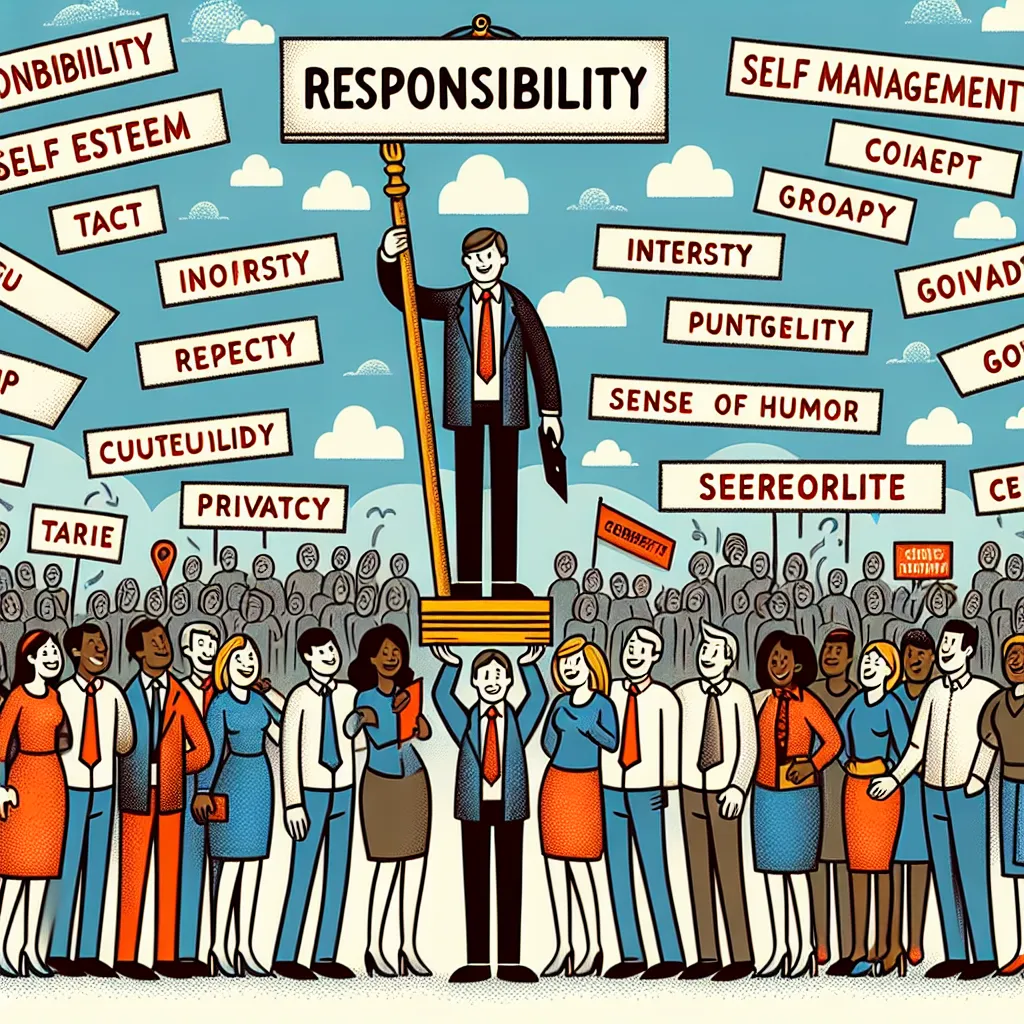 1. Responsibility
2. Self Esteem
3. Sociability
4. Self Management
5. Tact
6. Integrity
7. Honesty
8. Respect
9. Empathize
10. Sense of Humor
11. Etiquette
12. Courteous
13. Punctual
14. Gossip
1
1. Responsibility
2. Self Esteem
3. Sociability
4. Self Management
5. Tact
6. Integrity
7. Honesty
8. Respect
9. Empathize
10. Sense of Humor
11. Etiquette
12. Courteous
13. Punctual
14. Gossip
1
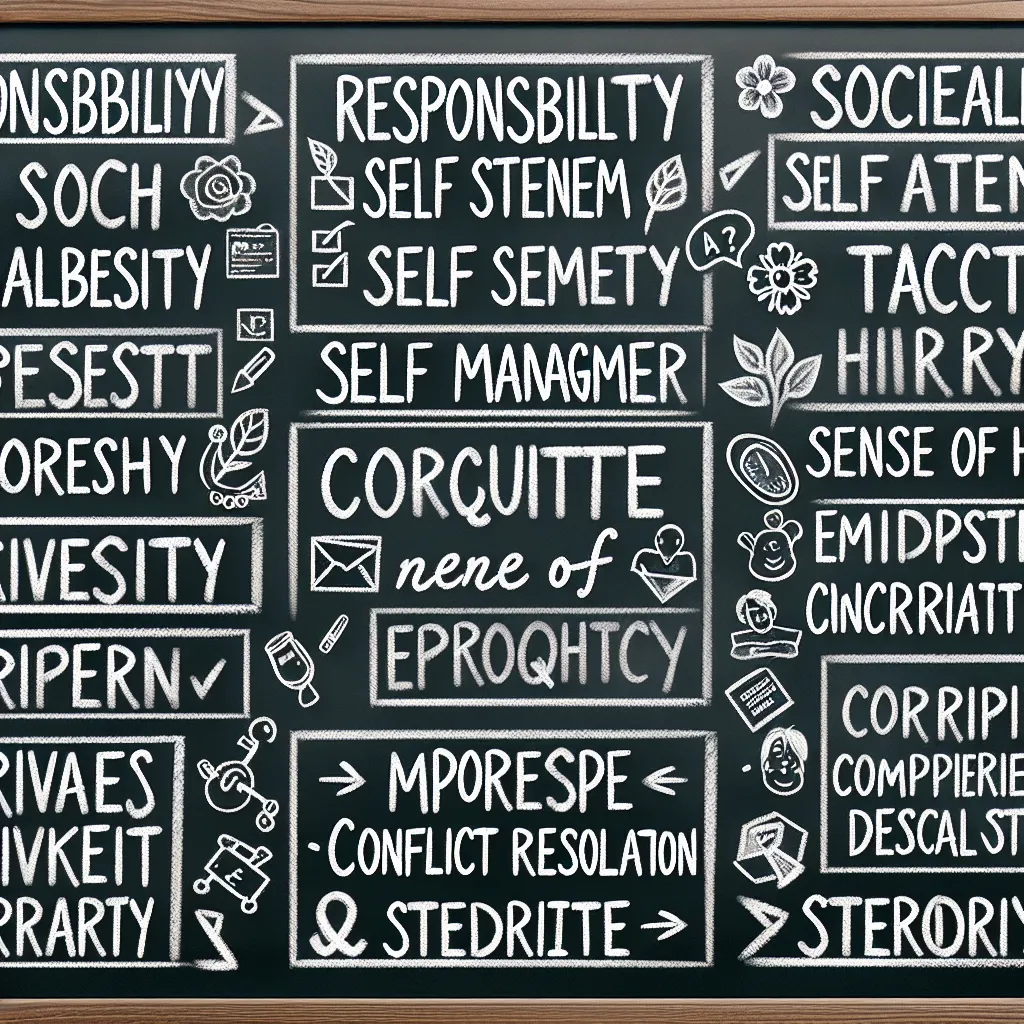 1. Responsibility: Own Up to Actions
2. Self Esteem: Confidence and Worth
3. Sociability: Positive Interaction
4. Self Management: Effective Regulation
5. Tact: Delicate Communication
6. Int
1. Responsibility: Own Up to Actions
2. Self Esteem: Confidence and Worth
3. Sociability: Positive Interaction
4. Self Management: Effective Regulation
5. Tact: Delicate Communication
6. Int
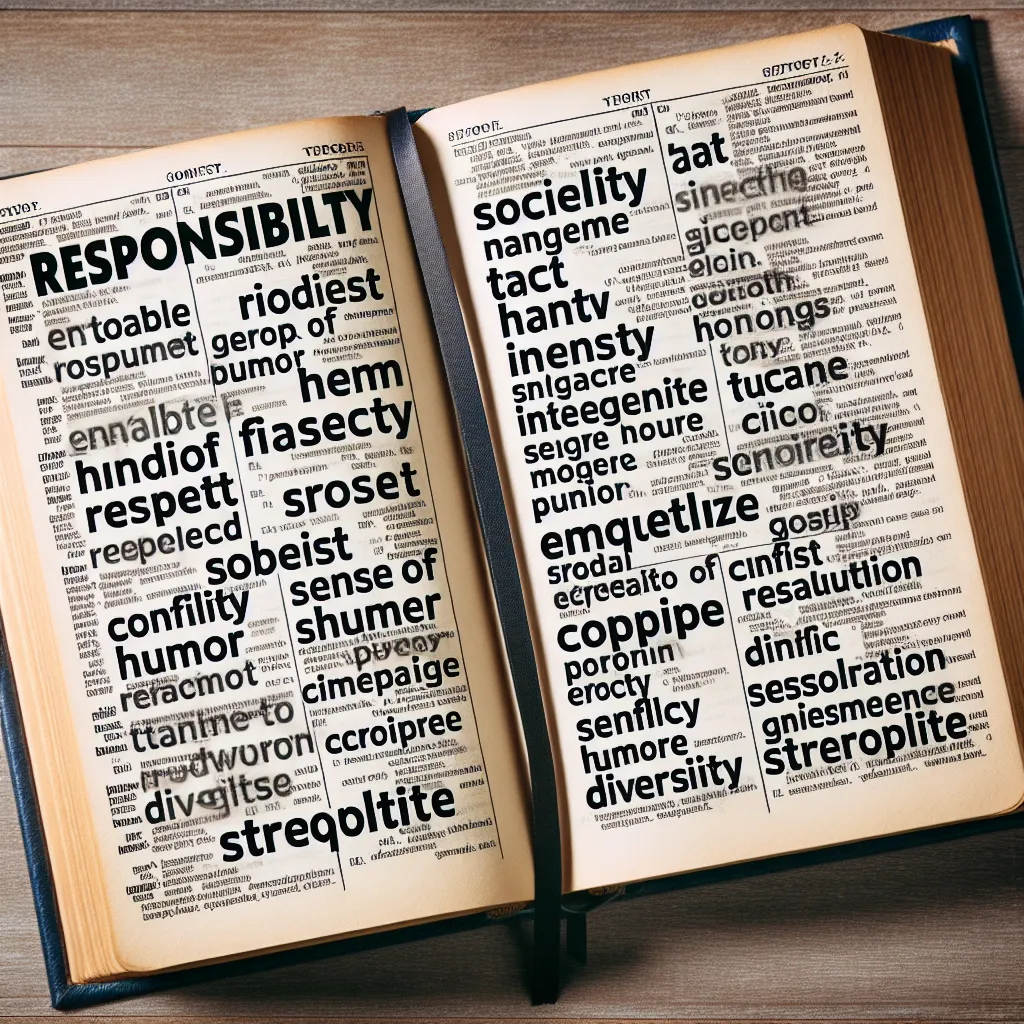 1. Responsibility: Ownership of actions and consequences.
2. Self Esteem: Belief in worth and abilities.
3. Sociability: Seeking companionship and positive interaction.
4. Self Management: Regula
1. Responsibility: Ownership of actions and consequences.
2. Self Esteem: Belief in worth and abilities.
3. Sociability: Seeking companionship and positive interaction.
4. Self Management: Regula
Question Tags
If you want your question answered by an AI, click here.

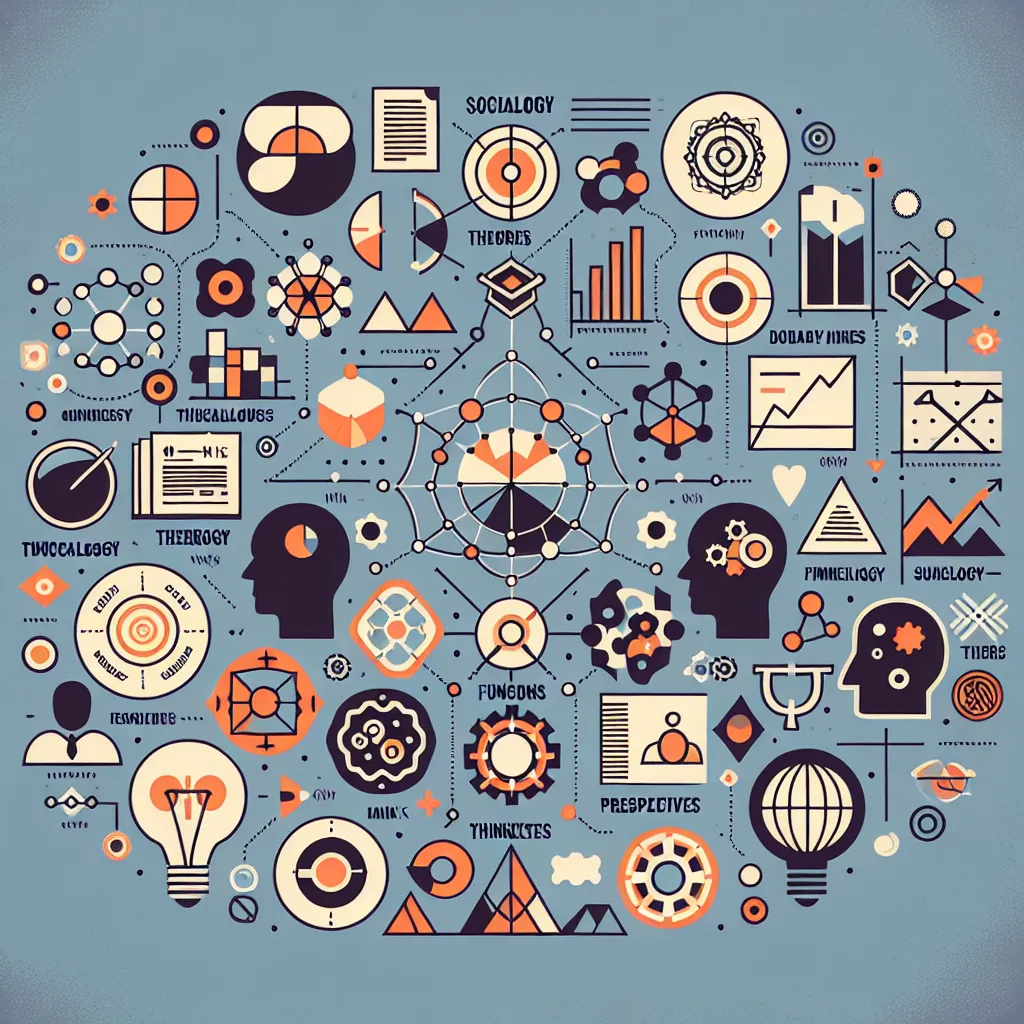
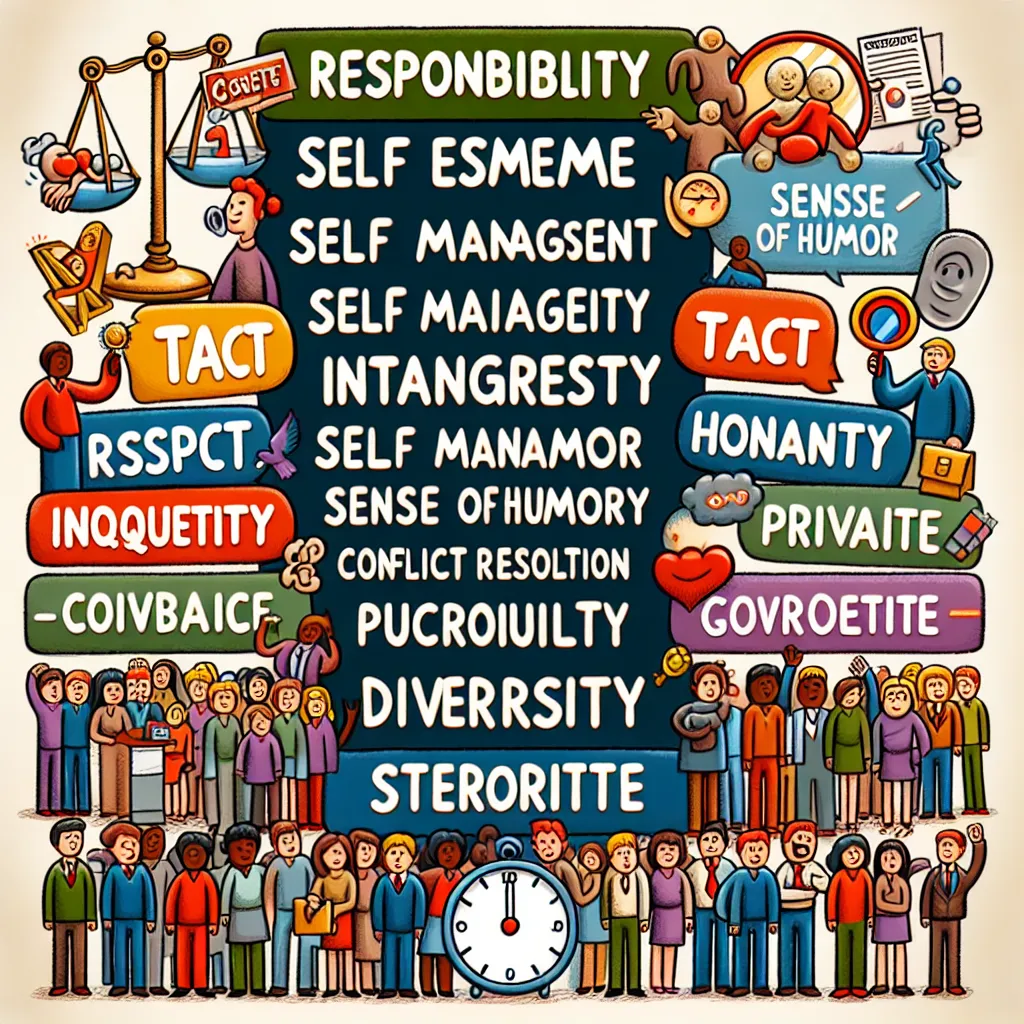
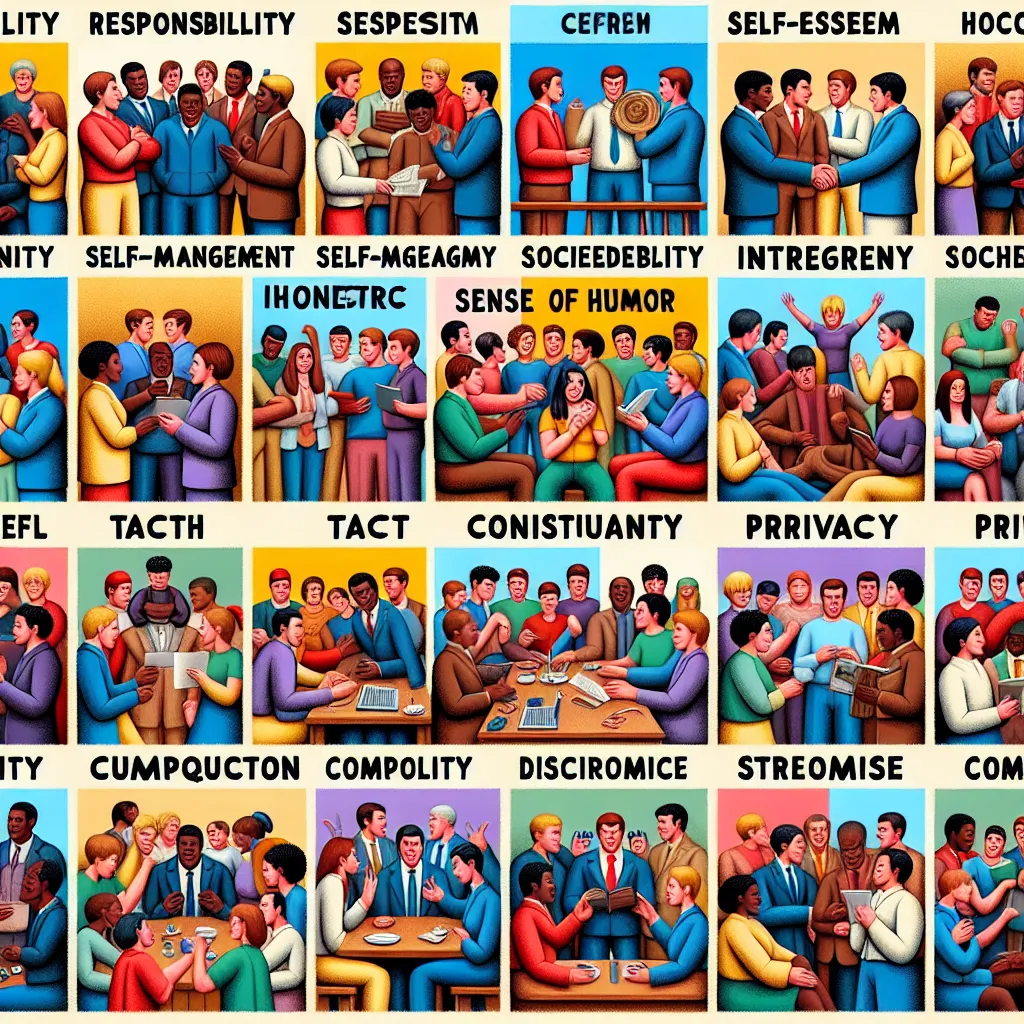
Post your own comment: